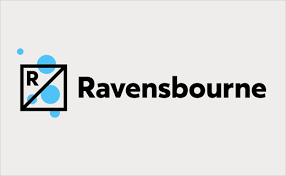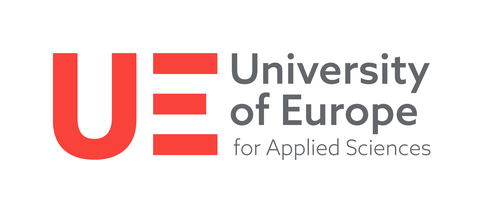UX/UI Design: Crafting User-Centered Digital Experiences Abroad
Unlock the World of User Experience and Interface Design
Are you passionate about creating intuitive and visually appealing digital products? UX/UI Design is the perfect field for aspiring designers who want to blend creativity with technology. This discipline focuses on enhancing user satisfaction by improving the usability, accessibility, and pleasure provided in the interaction between the user and a product. As an Indian student eyeing study abroad opportunities, pursuing a degree in UX/UI Design can open doors to global tech hubs like Silicon Valley, London, or Toronto.
Studying UX/UI Design abroad equips you with cutting-edge skills in high demand worldwide. From designing mobile apps to optimizing e-commerce websites, you'll learn to solve real-world problems through empathy-driven design. This course page explores everything you need to know about UX/UI Design programs, tailored for Indian students seeking international education.
What is UX/UI Design?
UX (User Experience) Design revolves around how a product feels to users—focusing on ease of use, efficiency, and emotional impact. UI (User Interface) Design, on the other hand, deals with the visual and interactive elements, such as buttons, menus, and layouts. Together, they form the backbone of modern digital design.
Why choose UX/UI Design? In an era dominated by apps, websites, and smart devices, companies like Google, Apple, and Amazon prioritize user-centric designs. For Indian students, this field offers a bridge between India's booming IT sector and global innovation, allowing you to return home with world-class expertise or build a career internationally.
Course Overview: What You'll Learn
UX/UI Design programs abroad typically span 1-2 years for master's degrees or 3-4 years for bachelor's. Curriculums are hands-on, combining theory with practical projects. Expect to cover:
- Fundamentals of Design Principles: Color theory, typography, layout, and visual hierarchy.
- User Research and Analysis: Conducting interviews, surveys, and usability testing to understand user needs.
- Wireframing and Prototyping: Tools like Figma, Adobe XD, and Sketch to create interactive mockups.
- Interaction Design: Animations, micro-interactions, and responsive design for multi-device compatibility.
- Accessibility and Ethics: Ensuring designs are inclusive for diverse users, including those with disabilities.
- Portfolio Development: Building a professional portfolio showcasing real-world projects.
- Emerging Technologies: VR/AR interfaces, AI-driven personalization, and sustainable design practices.
Many programs include internships with tech giants, giving you invaluable industry exposure. For instance, a typical semester might involve collaborative group projects simulating client briefs from startups to Fortune 500 companies.
Why Study UX/UI Design Abroad as an Indian Student?
India's digital economy is exploding, but studying abroad provides access to advanced resources, diverse perspectives, and networking opportunities unavailable locally. Here's why it's a smart move:
- Global Exposure: Learn from international faculty and peers, fostering a multicultural design mindset essential for global products.
- State-of-the-Art Facilities: Access to high-end labs, software licenses, and design studios in countries like the USA, UK, Canada, and Australia.
- Industry Connections: Proximity to innovation hubs means easier internships and job placements at companies like Meta, IBM, or local startups.
- Visa and Work Opportunities: Post-study work visas (e.g., OPT in the US or PGWP in Canada) allow 1-3 years of work experience, boosting your resume.
- Cultural Adaptation: Programs often include support for international students, such as orientation sessions on cultural integration, helping Indian students thrive away from home.
Moreover, the demand for UX/UI designers is skyrocketing. According to LinkedIn's Emerging Jobs Report, UX design roles have grown by 20% annually, with salaries starting at $70,000-$90,000 USD for entry-level positions abroad—far exceeding Indian averages.
Top Universities and Programs for UX/UI Design
Choosing the right university is crucial. Below is a table highlighting top programs popular among Indian students:
| University | Country | Program | Duration | Tuition (Approx. per year, USD) | Key Highlights |
|---|---|---|---|---|---|
| Carnegie Mellon University | USA | Master of Human-Computer Interaction | 1-2 years | 50,000 | Interdisciplinary focus; strong industry ties; 95% placement rate. |
| University College London (UCL) | UK | MSc Human-Computer Interaction | 1 year | 30,000 | Research-oriented; collaborations with BBC and Google; central London location. |
| University of Toronto | Canada | Master of Information (UX Design Stream) | 2 years | 25,000 | Affordable; diverse student body; co-op options for work experience. |
| Royal College of Art | UK | MA Digital Design | 2 years | 35,000 | Creative portfolio emphasis; alumni at Apple and Nike. |
| Monash University | Australia | Master of Design (Interaction Design) | 1-2 years | 28,000 | Focus on innovation; post-study work visa up to 4 years. |
These programs are ranked highly by QS World University Rankings for design and technology. Indian students often choose them for their supportive environments, including Indian student associations and vegetarian meal options on campus.
Eligibility and Entry Requirements for Indian Students
To apply, you'll need:
- Academic Qualifications: Bachelor's degree in design, computer science, or related field (minimum 60-65% for Indian universities). GPA equivalent of 3.0/4.0.
- English Proficiency: IELTS (6.5+ overall) or TOEFL (90+). Some universities accept Duolingo for convenience.
- Portfolio: A strong digital portfolio with 5-10 projects demonstrating your design process—from research to final prototypes.
- Standardized Tests: GRE optional for most programs; GMAT for business-oriented ones.
- Letters of Recommendation and SOP: Highlight your passion for design and why studying abroad aligns with your goals. Mention challenges like adapting to new cultures as an Indian student.
- Visa Requirements: Student visa (F-1 for US, Tier 4 for UK) requires proof of funds (around $20,000-$30,000 USD) and ties to India for return intent.
Deadlines vary: Fall intake (September) applications due January-March; Spring (January) by September. Start early to secure scholarships!
Career Prospects After Graduation
UX/UI Design graduates are in high demand across industries like tech, finance, healthcare, and e-commerce. As an Indian student, your bilingual skills and cultural insights give you an edge in global teams.
Popular Job Roles:
- UX/UI Designer: Average salary $85,000 USD (₹70 lakhs INR).
- Product Designer: $95,000 USD, focusing on end-to-end product development.
- Interaction Designer: $80,000 USD, specializing in user flows and animations.
- UX Researcher: $90,000 USD, involving data analysis and user testing.
- Freelance Consultant: Flexible opportunities with platforms like Upwork, earning $50-$100/hour.
Top employers include FAANG companies, Deloitte Digital, and Indian firms like Infosys and Flipkart upon return. With experience, salaries can exceed $120,000 USD. Many programs boast 90%+ employment rates within 6 months of graduation.
Scholarships and Funding Options for Indian Students
Studying abroad can be affordable with the right funding. Key options include:
- University Scholarships: Merit-based awards like CMU's Design Fellowship (up to $20,000) or UCL's International Excellence Scholarship (£10,000).
- Government Schemes: India's Fulbright-Nehru for US studies or UK's GREAT Scholarships for Indian students (£10,000+).
- Private Funds: Inlaks Shivdasani Foundation (up to $100,000) or JN Tata Endowment (loan-scholarships up to ₹10 lakhs).
- Part-Time Work: Allowed up to 20 hours/week on student visas; design gigs can cover living costs ($10,000-$15,000/year).
- Loans: From Indian banks like SBI (interest rates 9-11%) with moratorium during studies.
Apply for scholarships simultaneously with admissions—deadlines align closely. Pro tip: Emphasize your Indian perspective in essays to stand out.
Application Tips and Next Steps
Navigating applications from India? Here's a streamlined guide:
- Research Programs: Use sites like Studyportals or university portals to shortlist 5-7 options.
- Build Your Portfolio: Use free tools like Canva or Figma; include diverse projects inspired by Indian contexts (e.g., designing for rural users).
- Prepare Documents: Get transcripts attested by AIU; translate if needed.
- Seek Guidance: Consult education agents or join forums like Pagalguy for Indian student experiences.
- Visa Prep: Gather financial proofs early; attend virtual fairs for university reps.
Common challenges for Indian students include homesickness and cultural shock, but universities offer counseling and Diwali celebrations to ease the transition.
Embark on Your Design Journey Today
Pursuing UX/UI Design abroad isn't just about a degree—it's about transforming how the world interacts with technology. As an Indian student, you'll bring unique insights to the table, blending Eastern creativity with Western innovation. With endless opportunities in a field that's future-proof, now is the time to apply. Start sketching your path to success—your dream interface awaits!
For personalized advice, contact our study abroad counselors. Let's design your global future together.




